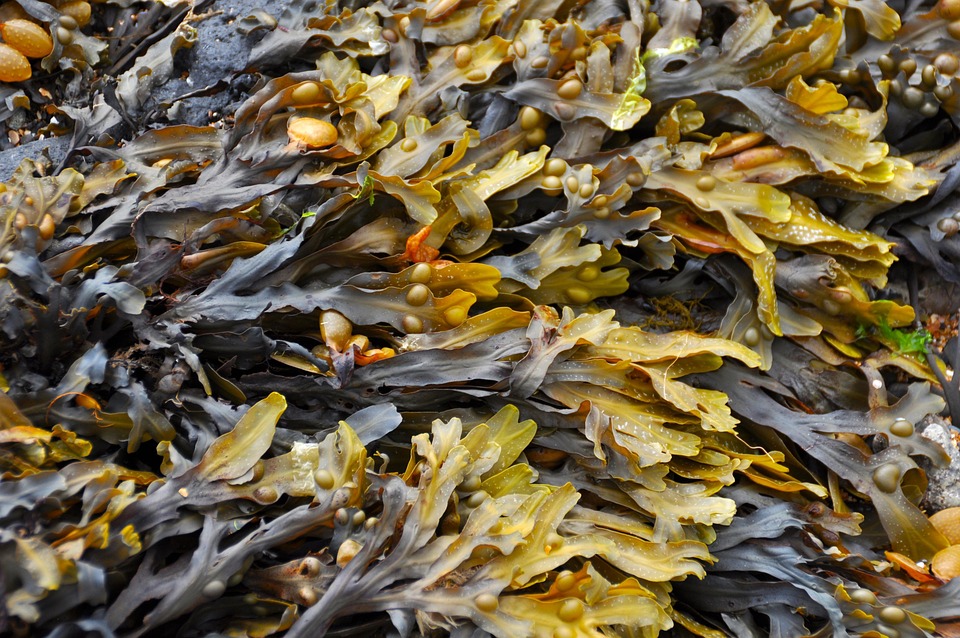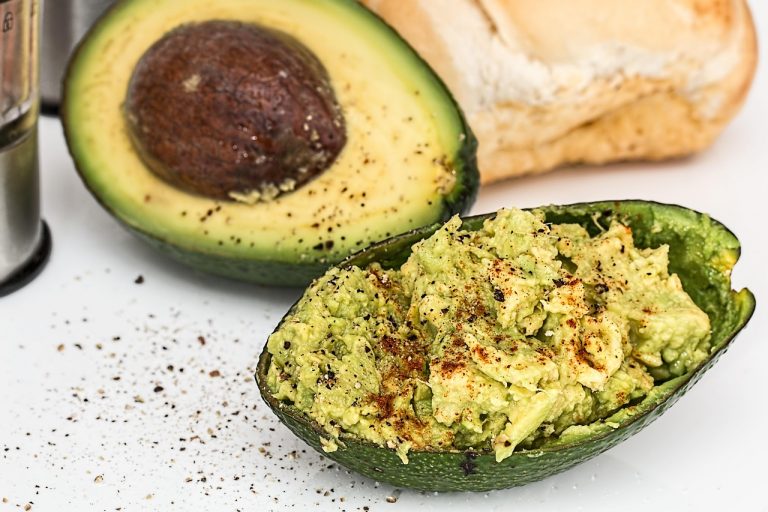Did you know that seaweed has been a staple in diets around the world for centuries? From sushi rolls in Japan to the vibrant green salads of Korea, this under-the-sea superfood is more than just a side dish; it’s a powerhouse of nutrients that can positively influence hormone balance. If you’re looking for a tasty way to support your health, let’s dive into five seaweed snacks that can help balance your hormones naturally.
Contents
Why Seaweed?
Before we get into the snacks, let’s talk about why seaweed is so special. Seaweed is rich in essential minerals like iodine, calcium, magnesium, and iron. It also contains antioxidants and dietary fibers that can support gut health. But when it comes to hormones, the iodine content is particularly noteworthy. Iodine plays a crucial role in thyroid function, which regulates metabolism, energy levels, and even mood.
Incorporating seaweed into your diet isn’t just a trend; it’s a step toward a healthier hormonal balance. So, let’s check out some delicious seaweed snacks that are both satisfying and beneficial!
1. Nori Sheets
What They Are
Nori sheets are probably the most recognizable form of seaweed in the Western world, thanks to sushi. These thin, crispy sheets are made from edible seaweed and are often roasted for added flavor.
Benefits
Nori is packed with iodine, which is essential for thyroid health. A well-functioning thyroid can help regulate hormones related to metabolism and energy. Additionally, nori contains antioxidants that can combat oxidative stress, potentially benefiting overall hormonal balance.
Pros and Cons
Pros:
- Low in calories and high in nutrients.
- Versatile: great for sushi, snacks, or crumbled over salads.
Cons:
- Some people may be sensitive to iodine, so moderation is key.
- Can be a bit salty, depending on how it’s prepared.
How to Enjoy
You can munch on nori sheets straight from the package or use them to make sushi rolls stuffed with veggies or lean proteins. For a quick snack, try lightly brushing them with olive oil and seasoning before roasting for added flavor.
2. Seaweed Chips
What They Are
Seaweed chips are a crunchy, flavorful snack made from various seaweed types, often roasted and sprinkled with seasonings. They’re a fantastic alternative to traditional potato chips.
Benefits
These chips retain many of the nutritional benefits of seaweed, including iodine, vitamins A, C, E, and K, and various minerals. The fiber content in seaweed can also aid digestion and promote gut health, which is closely tied to hormone regulation.
Pros and Cons
Pros:
- A healthier alternative to conventional snacks.
- Available in various flavors, making them fun to eat.
Cons:
- Some brands may add preservatives or excess salt.
- Can be more expensive than regular chips.
How to Enjoy
Seaweed chips are perfect for snacking on their own or can be paired with hummus or guacamole for a nutritious dip. They’re also great for topping salads or soups for an extra crunch.
3. Dulse Flakes
What They Are
Dulse is a type of red seaweed that’s often dried and ground into flakes. These flakes have a savory, umami flavor that can enhance a variety of dishes.
Benefits
Dulse is a fantastic source of iodine and also contains potassium, magnesium, and iron. Its high antioxidant content can help combat inflammation, which is crucial for maintaining hormonal balance. It’s also noted for its potential to improve thyroid function.
Pros and Cons
Pros:
- Easy to incorporate into meals.
- Adds flavor without extra calories.
Cons:
- Some may find the taste too strong if used excessively.
- Limited availability in some areas.
How to Enjoy
Sprinkle dulse flakes over popcorn for a savory snack, mix them into salad dressings, or add them to soups and stews for an extra nutrient boost. You can also mix them into homemade energy bars for an unexpected twist.
4. Kombu
What They Are
Kombu is a type of kelp that’s commonly used in Japanese cooking, especially in making dashi (a flavor base for soups). It can also be consumed as a snack.
Benefits
Kombu is rich in iodine and other minerals, which are essential for healthy thyroid function. It also contains alginate, a fiber that may help reduce fat absorption in the gut, potentially supporting weight management—a key factor in hormonal balance.
Pros and Cons
Pros:
- Nutrient-dense and versatile.
- Can be used in cooking or eaten as a snack.
Cons:
- Requires cooking for optimal flavor and texture.
- May contain high levels of sodium if salted.
How to Enjoy
You can simmer kombu in water to make a broth or soak it in water to soften it up for salads. For a crunchy snack, try toasting it lightly and seasoning it with your favorite spices.
5. Wakame Salad
What It Is
Wakame is a type of edible seaweed that’s commonly found in miso soup and salads. It has a slightly sweet flavor and a tender texture.
Benefits
Wakame is another excellent source of iodine and is rich in omega-3 fatty acids, which are essential for hormone production. The fiber in wakame can also support gut health, contributing to overall hormonal balance.
Pros and Cons
Pros:
- Flavorful and satisfying.
- Can be served warm or cold.
Cons:
- Some people may be allergic to seaweed.
- Can be high in sodium if prepared with added salt.
How to Enjoy
Prepare a wakame salad by rehydrating the dried seaweed in water, then tossing it with sesame oil, soy sauce, and sesame seeds for a delicious side dish. It pairs well with grilled fish or chicken.
FAQs
1. How often should I eat seaweed for hormone balance?
Incorporating seaweed into your diet a few times a week can be beneficial, but it’s essential to listen to your body. Iodine intake should be monitored, especially if you have thyroid issues.
2. Are there any risks associated with eating seaweed?
While seaweed is nutritious, excessive consumption can lead to iodine overload, which may affect thyroid function. Moderation is key.
3. Can I find seaweed snacks in grocery stores?
Absolutely! Many grocery stores now carry a variety of seaweed snacks, including nori sheets, seaweed chips, and dulse flakes. Health food stores and online retailers are also great places to find them.
4. Are all seaweeds created equal?
Not all seaweeds have the same nutrient profile. It’s best to vary your seaweed intake to benefit from the different minerals and vitamins each type offers.
Conclusion
Seaweed snacks are not just trendy; they’re a delicious way to support hormone balance naturally. Whether you opt for crispy nori sheets, flavorful seaweed chips, or nutrient-packed wakame salad, incorporating these snacks into your diet can offer a range of health benefits.
As we continue to learn more about the connection between diet and hormonal health, seaweed stands out as a nutrient-rich option worth exploring. So, why not give these snacks a try? You might just find a new favorite that’s as good for your taste buds as it is for your hormones.
Disclaimer: This article is for educational purposes only and is not a substitute for professional medical advice. Always consult a qualified healthcare provider before making changes to your health routine.
References
- Kafle, G. K., & Kafle, B. (2021). Nutritional and health benefits of seaweeds: A review. Food Science and Nutrition. https://doi.org/10.1002/fsn3.2064
- National Institutes of Health. (2022). Iodine. Retrieved from https://ods.od.nih.gov/factsheets/Iodine-HealthProfessional
- Harvard Health Publishing. (2020). The health benefits of seaweed. Retrieved from https://www.health.harvard.edu/staying-healthy/the-health-benefits-of-seaweed
Get Your FREE Natural Health Guide!
Subscribe now and receive our exclusive ebook packed with natural health tips, practical wellness advice, and easy lifestyle changes, delivered straight to your inbox.




